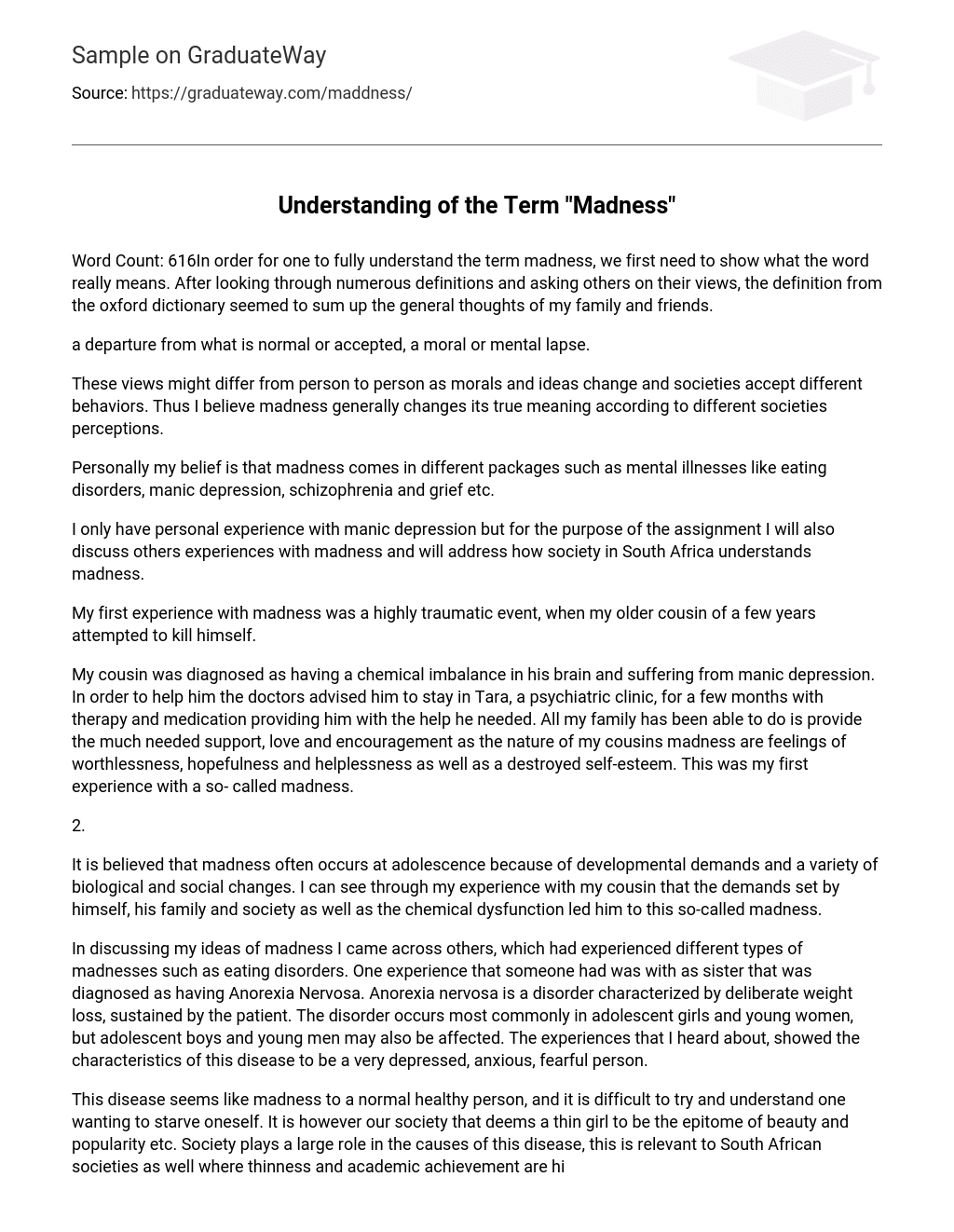When trying to comprehend madness, it is crucial to establish its authentic significance. After contemplating various definitions and viewpoints, my family and friends concur that the definition provided by the Oxford Dictionary aptly encapsulates our shared sentiments. According to this definition, madness refers to a departure from societal norms or acceptability, indicating a decline in moral standards or mental well-being.
Madness can differ among people because of the ever-evolving nature of morals, ideas, and societal acceptance towards new behaviors. Hence, I believe that society’s viewpoint is vital in determining madness.
In my opinion, madness can manifest itself in different ways, encompassing mental illnesses like eating disorders, manic depression, schizophrenia, and grief as well as other forms.
I will discuss my personal experience with manic depression and explore other individuals’ encounters with madness. Additionally, I will delve into the perception of madness within South African society.
Witnessing my older cousin, who was a few years older than me, attempting to end his own life deeply disturbed me and marked my first experience with insanity.
My cousin was diagnosed with a chemical imbalance in his brain and manic depression, which led doctors to recommend a several-month stay at Tara, a psychiatric clinic. During his time there, he would receive therapy and medication. Due to his condition causing feelings of worthlessness, hopelessness, helplessness, and destroyed self-esteem, our family has been providing the necessary support, love, and encouragement. This marked my initial encounter with such an affliction.
The common belief is that adolescence frequently entails encountering madness, which can be traced back to developmental challenges and diverse biological and social transformations. Through observing my cousin, I have come to understand how the interplay of self-imposed expectations, familial and societal pressures, along with chemical imbalances contribute to what is commonly known as madness.
During my exploration of madness, I came across individuals who had encountered different types of madness, such as eating disorders. One person shared their experience with a sister diagnosed with Anorexia Nervosa – a disorder characterized by deliberate weight loss. Although this condition mainly affects teenage girls and young women, it can also affect adolescent boys and young men. The stories I heard emphasized the traits of this illness, portraying those affected as deeply depressed, anxious, and scared.
Despite the difficulty for mentally and physically healthy individuals to understand why someone would choose to deprive themselves of food, society reinforces the idea that slim women are the epitome of beauty and popularity. This influence is especially prominent in South African communities, where being thin and achieving academic success are highly valued. Anorexia nervosa can be seen as a response to cultural and identity conflicts. Interestingly, a case study on anorexia nervosa focused on patients with the disorder found that less than 5% were of African descent.
The way madness is perceived in South African and American societies reveals how societal norms dictate the level of sanity.
The definition of madness is a challenging undertaking as it can be understood differently by different people and societies, leading to disagreements. Thus, my understanding of madness is shaped by both the perspectives of others and my own personal experiences.





